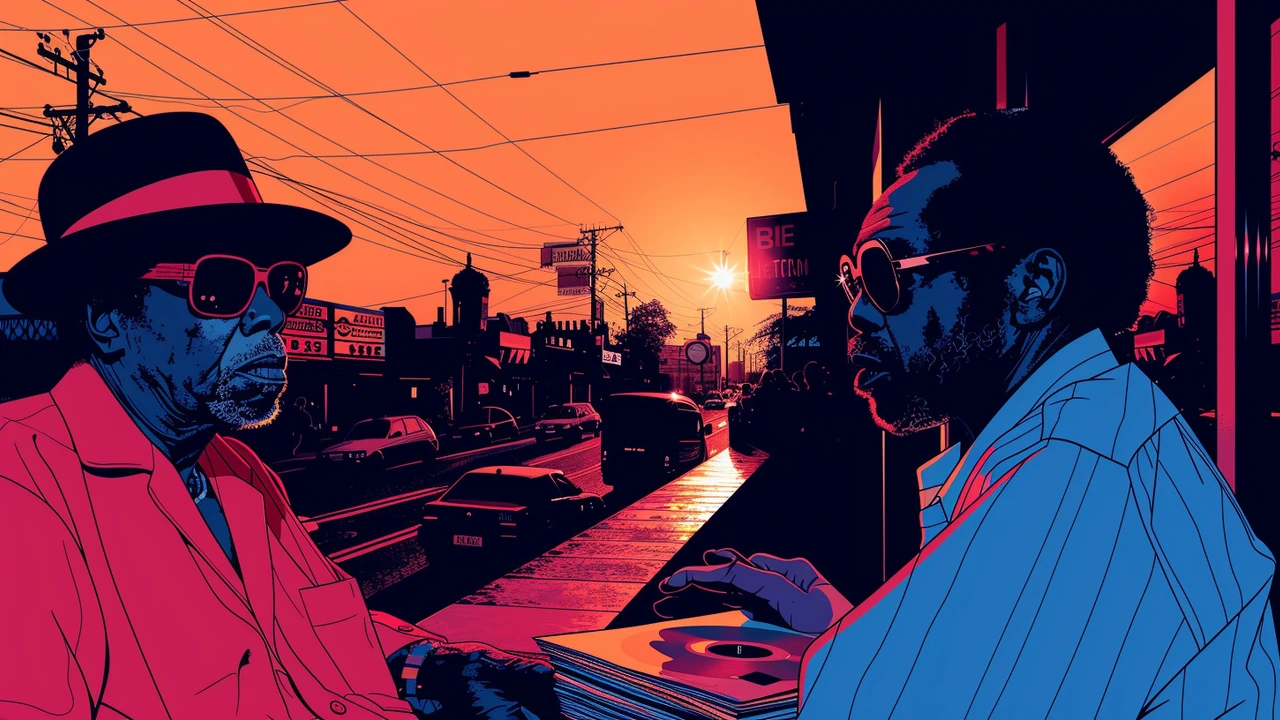Discovering the Roots of Blues Music
The journey into the heart of blues music begins in the Deep South of the United States, where this profound genre found its nascent voice among African American communities in the late 19th century. The beauty of blues lies not just in its melody but in its ability to convey deep emotions and the human experience through its distinct twelve-bar blues chord progression and soulful lyrics. It's a genre that speaks to the soul, translating hardship and joy into a universal language.
The blues has given birth to a multitude of sub-genres, each carrying its unique flavor, from Delta blues, with its raw, emotive depth, to the electrifying energy of Chicago blues. These styles reflect the geographical, social, and cultural landscapes of their origins, showcasing the versatility and adaptability of blues music. Artists like Robert Johnson, whose hauntingly beautiful compositions laid the groundwork for future generations, and Muddy Waters, with his pioneering electric blues sound, have become legends, whose music continues to inspire artists across genres.
Understanding the roots of blues music is essential for any true fan. It's not just about knowing the names and the tracks; it's about feeling the connection to the stories and struggles embedded in the rhythm and the lyrics. As you immerse yourself into the genre, you'll find that blues is not just music; it's an experience, a journey through the trials and tribulations of life, echoing the sentiments of resilience and hope.
The Icons of Blues Music
Exploring the pantheon of blues icons is like walking through a hall of fame, each artist a pillar of the genre's vast and rich history. B.B. King, with Lucille in his hands, brought a level of virtuosity and charisma that made him the 'King of the Blues.' His ability to express a spectrum of emotions through a single note is unparalleled, making him a central figure in bringing blues into the mainstream.
Other figures like Howlin' Wolf and John Lee Hooker, with their gritty, soul-stirring voices, have left an indelible mark on the blues landscape. Their music, deeply rooted in personal and collective experiences of struggle, speaks to the enduring power of the human spirit. Female blues artists, such as Bessie Smith and Etta James, brought their unique perspectives and voices to the forefront, enriching the genre with their profound narratives and vocal prowess.
The influence of these icons extends beyond their lifetime, with their music continually inspiring new generations of musicians. Their pioneering work in the genre laid the foundation for rock and roll, R&B, and even hip-hop, proving the timeless and universal appeal of blues music. To truly celebrate the essence of blues, one must delve into the discography of these legendary figures, for their songs are not just tracks but chapters in the greater story of blues music.
Creating Your Essential Blues Playlist
Compiling the ultimate blues playlist is a deeply personal journey, one that allows you to connect with the heart and soul of the genre. A great starting point is to include the classics, songs like 'Cross Road Blues' by Robert Johnson, which captures the quintessential Delta blues sound, or 'The Thrill Is Gone' by B.B. King, a masterpiece that showcases his expressive guitar playing and poignant vocals.
Don't forget to explore live recordings; blues music truly comes alive in performance, where the raw emotion and energy of the music can be fully experienced. Tracks like 'Hoochie Coochie Man' by Muddy Waters and 'Boom Boom' by John Lee Hooker gain an added depth and vitality in their live versions, offering a glimpse into the soul of blues music.
Incorporate modern blues artists as well, like Gary Clark Jr., whose fusion of blues, rock, and soul demonstrates the genre's evolving nature. His track 'Bright Lights' encapsulates the modern blues sound, blending traditional elements with contemporary influences.
Remember, your blues playlist is an evolving compilation that should grow and change as you delve deeper into the genre. It's a reflection of your journey through the blues, a personal soundtrack that resonates with your experiences and emotions.
Deepening Your Blues Appreciation
Appreciating blues music is about more than just listening; it's about understanding its history, its influencers, and its impact. Dive into documentaries and books that chronicle the evolution of the blues and offer insights into the lives of its biggest icons. Films like 'The Blues Brothers' and documentaries such as 'Martin Scorsese Presents: The Blues' offer both entertainment and education, enriching your understanding of the genre.
Attending live blues performances is another way to truly appreciate the depth and vibrancy of blues music. There's something magical about experiencing the soulful melodies and stirring rhythms in person, feeling the energy of the artists and the audience as they connect through the universal language of music.
Finally, play the blues. Whether you're a seasoned musician or picking up an instrument for the first time, there's no better way to understand and appreciate blues music than by playing it yourself. The act of creating blues music, of pouring your own emotions and experiences into the songs, deepens your connection to the genre in a profound and personal way.



